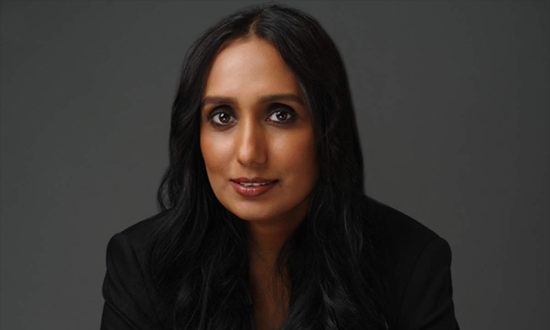Aditi Balbir, a woman of all shades is not only the founder of Veekends, but also an angel investor, mentor, and advisor to early-stage start-ups founded by female entrepreneurs. Being an avid traveler, Aditi had for long, known the potential appeal of India’s rich cultural diversity. She further saw a huge gap in what the new-age Indian wanted and what he/she was getting. Combined with her passionate advocacy of sustainable development and community inclusiveness, Aditi translated her vision in micro-level eco-tourism, through her venture V Resorts, offering a confluence of cultures to the evolved traveler while boosting the micro-economies of the local communities simultaneously.
Entrepreneurs are smart people. They aren’t philanthropic by nature, because the first goal is to have a business that generates profit. This isn’t as capitalistic as it sounds, for one cannot contribute unless one is self-sustaining. Think of it. Would Melinda Gates be able to push global welfare agenda if Microsoft didn’t earn abnormal gains? Or Mackenzie Scott given away $4.2 billion to end inequality if Amazon wasn’t the Number 2 Fortune 500? And so, it is natural that the first principle of sustainability is “Economic Viability’ that says become profitable first, and then contribute to society.
The second breed of relatively new entrepreneurs are those that are creating business that are formed around Sustainable Development Goals (UNSDGs). For instance, plant-based products that focus on SDG 13 – Climate Action or renewable energy companies that work on SDG 7 – Affordable and Clean Energy or companies solving for plastic pollution working on SDG 14 – Life Below Water. This really is the new market disruption and each business model is created to generate profit, not based on philanthropy.
So where is the need emerging from?
2 clear sources – The Pandemic and the Conscious Consumer.
Covid made it startlingly clear that mankind had ruined the planet. Social media was flooded with pictures of clean rivers, animal sighting in cities and clear blue skies. Changing weather patterns and advent of natural disasters confirmed that climate change was real. People started to change, realizing the mad rush to become successful did not mean happiness. They learned how to live slow during the Pandemic. Conversations around mental wellness grew. And consumers understood that they needed to change behaviors – consume less, use only sustainable products, waste less, recycle, upcycle and so on. And here’s the latest statistic by growensemble.com – “a whopping 73% of global consumers say they would definitely or probably change their consumption habits to reduce their impact on the environment.”
So what does this mean for the entrepreneur? I started by saying that entrepreneurs are smart, and they can obviously see the size of this market and its growth potential. At the same time they (especially the millennials) are driven by sustainable values too, so the conjunction of supply to meet this demand fits perfectly. Let’s look at a few neuvo business models:
- Plant based products that replace traditional products – eg: The Meat industry
The global meat industry has grown alarmingly in the past few years, estimated to value at 838.3 billion U.S. dollars in 2020, and forecast to increase to 1157.6 billion U.S. dollars by 2025. However, climate change enthusiast argue that Meat consumption is responsible for releasing greenhouse gases such as methane, CO2, and nitrous oxide. And so emerged plant based meat – made from a substitute of wheat gluten that has a savoury flavour and chewy texture. Already, this market is estimated to be valued at USD 4.3 billion in 2020 and is projected to reach USD 8.3 billion by 2025, recording a CAGR of 14.0% (MarketsandMarkets). And companies that figured this out, like Beyond meat and Impossible are already unicorns.
- Circular economy models that replace centralised consumption – eg: The Hotel industry
The traditional hotel chains would procure groceries and food materials from one centralised vendor to maintain quality, citing consumer expectations as the reason. Meats were imported from New Zealand, fish in coastal zones were imported from the mainland and so on, incurring huge carbon footprint in logistics. And then came the eco-friendly traveller, the one who was happy to eat local, wanted fresh over frozen and expected variation in everything. The new chains now work on sourcing within a 100km radius only, and highlight the differences in cuisine as their USP. Homogeneity is out, you see. And the best side-effect from local sourcing – increasing income for the Small Business Owner.
- Clean energy industry replacing fossil fuels and making it affordable for retail – eg: EV industry
This is possibly the oldest revolution in the sustainability space, as we recognise the dire urgency of it, not so much due to depleting resources but due to climate change. The EV industry emerged in 1996, when General Motors released the EV1 – the first mass-produced, purpose-built modern electric car from one of the industry’s key players. Since then we have seen huge innovation – from EV manufacturers, to battery producers, to charging stations to the latest ride sharing EV companies like Blue Smart. Who will win and who will capture the market is yet to be seen. One thing is for sure, in the next 10 years we would have forgotten Diesel and petrol cars!
Venture Funds are already betting on the sustainable industry to drive the next revolution. And entrepreneurs are responding with innovation that is fast and furious to keep pace with the growing needs of consumers. Some of these solutions will change our life as much as the internet did, and if we’re lucky, they will irradicate the climate crisis.


